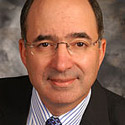12:09 PM
Global Market Consolidation: Read the Rules Carefully
With all of the talk and maneuvering around global exchange consolidation, it may be interesting to take a step back and ask, "Why, what for and is the world better with a single global exchange, or are we OK with the fragmented jurisdictional entities that typify today's environment?"
Exchanges were developed to provide a physical location where buyers and sellers could meet to trade shares. In the local-market philosophy, it didn't make sense to develop an exchange that traded products in which locals did not have insight. Why would you sell pomegranates in a locality where no one was interested in buying pomegranates? The same is true for stocks. Hence:
Axiom 1: Companies (stocks) are more likely to trade in the markets where they are known best.
Markets outside of the U.S. have boomed recently. Japan, Korea and India had broad market growth of more than 40 percent in 2005, and Euro stocks increased more than 15 percent. The energy, metal and agriculture markets also have boomed. As a result, investors and traders will beat a path to their door. However, as these markets cool, capital will flee just as quickly. Therefore:
Axiom 2: Money goes to the market where returns are best.
Competition and technology have pushed organizations to become more efficient. This has two effects: It enables exchanges to automate and expand their reach, and it enables firms to do more while charging much less. Today, exchanges can process billions of shares per day when 30 years ago they would have toppled over at the thought of trading one-twentieth of that volume, and it is done at a fraction of the cost. This illustrates:
Axiom 3: Technology drives efficiency and competition, which leads to consolidation.
A high school music teacher once told me that a multifunction room (speaking of a combined cafeteria and auditorium) serves neither function well. Multi-asset/global platforms are much like "cafetoriums" - the process of prioritization and the overwhelming draw of consolidating platforms and technology groups make it too easy to say that one product or one geography is more important than another. This opens opportunities for more-focused competitors, so:
Axiom 4: A multifunction platform solves neither function particularly well.
The financial markets are highly regulated, and the playing field is anything but level. While we as market participants believe we are in control of our own destiny, it is the regulators who own the ball and the field, and make the rules. As a result:
Axiom 5: No matter how competent or incompetent, regulators will inadvertently dictate who wins.
So, while the quest for global exchange consolidation is prescient and will be continuous, don't expect local competition to roll over, or brokers and investors to use a global or multi-asset-class exchange or platform just because it's there. While a global marketplace should offer easy access to global and/or multi-asset-class liquidity pools, larger firms will be less efficient at mobilizing market-specific technologies and/or services. In fact, the act of creating global marketplaces (without regulatory protection) will create opportunities for lean, creative and hungry competitors to out-flank these global behemoths.
While the momentum certainly is on the side of consolidation, don't count out the spunky and creative, especially during times of such significant change. Given that, however, regulators hold the key to victory. Even though we like to think that we are in control, in many cases, the rules dictate the victor, so read them very carefully.
Larry Tabb is founder and CEO of Westborough, Mass.-based TABB Group, a financial markets strategic advisory firm. ltabb@tabbgroup.com Larry Tabb is the founder and CEO of TABB Group, the financial markets' research and strategic advisory firm focused exclusively on capital markets. Founded in 2003 and based on the interview-based research methodology of "first-person knowledge" he developed, TABB Group ... View Full Bio




























